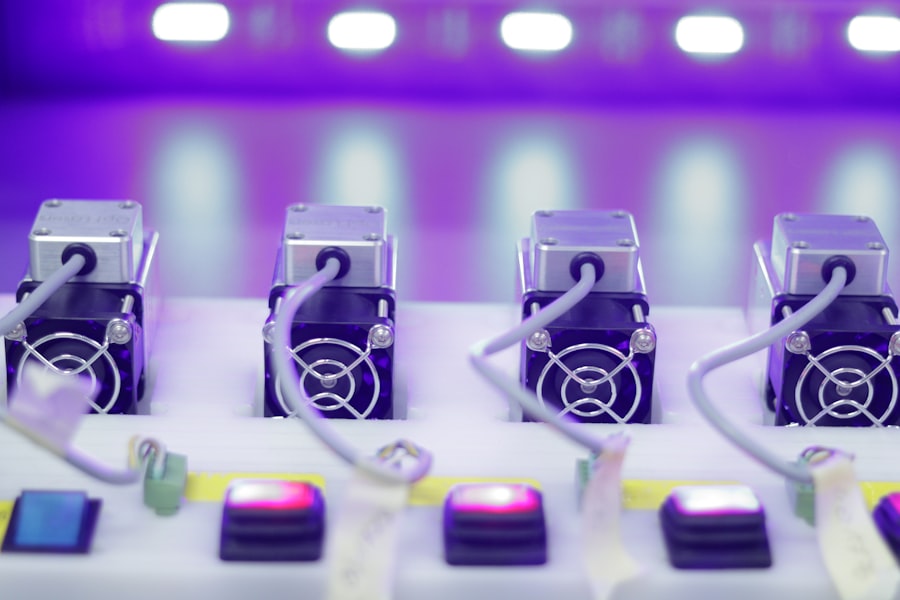Laser hair removal is a popular cosmetic procedure that uses a concentrated beam of light (laser) to remove unwanted hair. When it comes to dark skin, the process becomes a bit more complex. Dark skin contains more melanin, the pigment that gives skin its color, and this can make traditional laser hair removal treatments less effective and potentially risky. The challenge with laser hair removal on dark skin is finding a laser that can effectively target the hair follicles without causing damage to the surrounding skin.
Laser hair removal works by targeting the melanin in the hair follicle, heating it up and destroying the follicle to prevent future hair growth. However, when treating dark skin, the laser must be able to differentiate between the melanin in the hair and the melanin in the skin to avoid causing burns or discoloration. This requires a specialized laser that can safely and effectively treat dark skin without causing harm. It’s important for individuals with dark skin to seek out professionals who are experienced in treating darker skin tones to ensure a safe and effective treatment.
Key Takeaways
- Laser hair removal for dark skin requires specialized equipment and expertise due to the higher risk of pigmentation changes and burns.
- Factors to consider when choosing a laser for dark skin include the type of laser, the wavelength, and the experience of the practitioner.
- It is important to seek a qualified professional for laser hair removal on dark skin to minimize the risk of complications and achieve optimal results.
- Popular laser hair removal devices for dark skin include the Nd:YAG and diode lasers, which are safe and effective for darker skin tones.
- Preparing for laser hair removal on dark skin may involve avoiding sun exposure, shaving the treatment area, and following any specific instructions from the practitioner.
Factors to Consider When Choosing a Laser for Dark Skin
When choosing a laser for hair removal on dark skin, there are several factors to consider. The most important factor is the type of laser being used. Not all lasers are safe and effective for dark skin, so it’s crucial to choose a laser that is specifically designed for treating darker skin tones. Nd:YAG lasers are considered the gold standard for laser hair removal on dark skin because they have longer wavelengths that can penetrate deeper into the skin without being absorbed by the melanin in the skin.
Another important factor to consider is the experience and expertise of the professional performing the treatment. Laser hair removal on dark skin requires a high level of skill and knowledge to ensure that the treatment is both safe and effective. It’s essential to seek out a qualified professional who has experience working with dark skin and understands how to adjust the laser settings to minimize the risk of complications.
Additionally, it’s important to consider the location and reputation of the clinic or spa where the treatment will be performed. Look for a facility that specializes in treating dark skin and has a track record of successful laser hair removal treatments for individuals with similar skin tones.
The Importance of Seeking a Qualified Professional for Laser Hair Removal on Dark Skin
Seeking a qualified professional for laser hair removal on dark skin is crucial for ensuring a safe and effective treatment. Dark skin requires specialized care and expertise when it comes to laser hair removal, and not all practitioners have the necessary experience to safely treat darker skin tones. A qualified professional will have a deep understanding of how different types of lasers interact with dark skin and will be able to adjust the settings to minimize the risk of burns or discoloration.
In addition to technical expertise, a qualified professional will also have a keen eye for assessing the individual’s skin type and hair characteristics to determine the most appropriate treatment plan. They will take into account factors such as hair thickness, density, and color, as well as any underlying skin conditions that may affect the treatment process.
Furthermore, a qualified professional will prioritize safety and will conduct a thorough assessment of the individual’s medical history and any potential contraindications before proceeding with the treatment. They will also provide detailed pre- and post-treatment care instructions to ensure optimal results and minimize the risk of complications.
Popular Laser Hair Removal Devices for Dark Skin
| Device Name | Wavelength | Skin Type | Treatment Areas |
|---|---|---|---|
| Lumenis LightSheer | 800nm | Dark | Face, body |
| Candela GentleMax Pro | 755nm/1064nm | Dark | Face, body |
| Syneron-Candela elōs Plus | 810nm | Dark | Face, body |
There are several popular laser hair removal devices that are considered safe and effective for treating dark skin. The Nd:YAG laser is widely regarded as the gold standard for laser hair removal on dark skin due to its longer wavelength, which can penetrate deeper into the skin without being absorbed by the melanin in the skin. This makes it less likely to cause burns or discoloration on darker skin tones.
Another popular option for laser hair removal on dark skin is the Diode laser, which also has a longer wavelength that can safely treat darker skin tones. The Diode laser is known for its ability to target coarse and thick hair while minimizing discomfort during the treatment.
Alexandrite lasers are also considered safe for use on darker skin tones, although they have a shorter wavelength compared to Nd:YAG and Diode lasers. While Alexandrite lasers can effectively target melanin in the hair follicle, they may pose a higher risk of causing burns or discoloration on dark skin if not used by an experienced professional.
It’s important to note that not all laser devices are suitable for dark skin, so it’s crucial to seek out a qualified professional who has experience working with darker skin tones and uses FDA-approved lasers for safe and effective treatment.
Preparing for Laser Hair Removal on Dark Skin
Preparing for laser hair removal on dark skin involves several important steps to ensure a safe and successful treatment. Before undergoing laser hair removal, it’s essential to schedule a consultation with a qualified professional who specializes in treating darker skin tones. During the consultation, the professional will assess your skin type, hair characteristics, and medical history to determine the most appropriate treatment plan.
In preparation for the treatment, it’s important to avoid sun exposure and tanning beds, as this can increase the risk of complications during laser hair removal. It’s recommended to use sunscreen with a high SPF to protect your skin from UV radiation in the weeks leading up to your treatment.
It’s also important to discontinue any hair removal methods that involve plucking or waxing in the treatment area, as these methods can disrupt the hair follicles and interfere with the effectiveness of laser hair removal. Shaving is typically recommended as an alternative method of hair removal before laser treatment.
Additionally, it’s important to follow any pre-treatment instructions provided by your professional, such as avoiding certain skincare products or medications that may increase sensitivity to light or interfere with the treatment process.
Aftercare and Maintenance for Laser Hair Removal on Dark Skin

Aftercare and maintenance are crucial aspects of ensuring optimal results from laser hair removal on dark skin. Following your treatment, it’s important to follow any post-treatment care instructions provided by your professional to minimize the risk of complications and promote healing.
It’s common to experience some redness or mild swelling in the treated area after laser hair removal, but these symptoms typically subside within a few hours to a few days. It’s important to avoid sun exposure and tanning beds in the weeks following your treatment, as your skin may be more sensitive to UV radiation during this time.
It’s also important to keep your skin moisturized and well-hydrated after laser hair removal to promote healing and prevent dryness or irritation. Your professional may recommend specific skincare products or moisturizers that are suitable for use after laser treatment.
In terms of maintenance, multiple sessions of laser hair removal are typically required to achieve optimal results. The number of sessions needed will depend on factors such as your skin type, hair characteristics, and the area being treated. It’s important to follow your professional’s recommended treatment schedule to ensure that you achieve long-lasting results from laser hair removal.
Potential Risks and Side Effects of Laser Hair Removal on Dark Skin
While laser hair removal is generally considered safe for dark skin when performed by a qualified professional using appropriate technology, there are still potential risks and side effects to be aware of. One of the main risks associated with laser hair removal on dark skin is the potential for burns or discoloration if the laser is not used correctly. This underscores the importance of seeking out a qualified professional who has experience working with darker skin tones and uses FDA-approved lasers for safe and effective treatment.
Other potential side effects of laser hair removal on dark skin may include temporary redness, swelling, or discomfort in the treated area. In some cases, individuals with darker skin may experience temporary changes in pigmentation, such as lightening or darkening of the skin, although these changes are typically temporary and resolve over time.
It’s important to discuss any concerns or potential risks with your professional during your consultation and follow their recommendations for pre- and post-treatment care to minimize the risk of complications. By choosing a qualified professional and following their guidance, you can minimize potential risks and achieve safe and effective results from laser hair removal on dark skin.
If you’re considering laser hair removal for dark skin, it’s important to be well-informed about the potential risks and how to avoid them. In a recent article on INLaserHairRemoval.com, they discuss how to treat laser hair removal burns, offering valuable insights into this common concern. Understanding how to prevent and manage burns is crucial for a successful and safe hair removal experience. For more expert advice on laser hair removal, check out their article on the 7 best laser hair removal services in Ottawa to find the most reputable and effective options in your area.
FAQs
What is the best laser for hair removal on dark skin?
The best laser for hair removal on dark skin is the Nd:YAG laser. This type of laser is safe and effective for removing hair on darker skin tones because it has a longer wavelength that can penetrate deeper into the skin without causing damage to the surrounding tissue.
How does the Nd:YAG laser work for hair removal on dark skin?
The Nd:YAG laser works by targeting the pigment in the hair follicle and destroying it with heat. This process effectively removes the hair without causing damage to the surrounding skin.
Are there any risks or side effects of using the Nd:YAG laser for hair removal on dark skin?
While the Nd:YAG laser is generally safe for use on dark skin, there are still potential risks and side effects, such as temporary redness, swelling, and changes in skin pigmentation. It is important to consult with a qualified and experienced practitioner to minimize these risks.
How many sessions are typically needed for laser hair removal on dark skin?
The number of sessions needed for laser hair removal on dark skin can vary depending on the individual and the area being treated. On average, most people require 6-8 sessions spaced 4-6 weeks apart to achieve optimal results.
Is it important to seek a qualified practitioner for laser hair removal on dark skin?
Yes, it is crucial to seek a qualified and experienced practitioner for laser hair removal on dark skin. Darker skin tones require specialized knowledge and expertise to ensure safe and effective treatment without causing damage to the skin.






